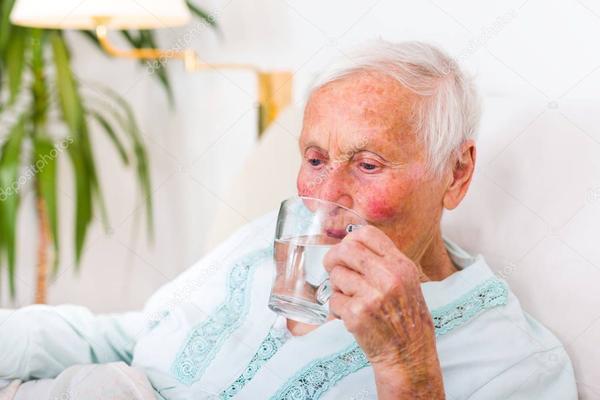
Why Drinking Water Filtration Is Important for Seniors
Lack of proper hydration will negatively affect one’s health, especially for older residents. A great number of things start going wrong with old age, and difficulties with drinking water is just one. Over the years, as we age, our bodies stop functioning as efficiently, and impaired hunger or thirst will become more apparent. This is why the risk of dehydration increases with age, and why adequate filtration is required along with the recommended water intake each day.
Health Risks of Dehydration in Seniors
The very acute risk of dehydration in seniors brings on fatigue during the day. It may not seem important, as fatigue is a staple of growing older, but more weariness can contribute to falls and accidents. What is also troubling is that elderly people might not even sense the recurring signs of dehydration until they actually feel thirst. It’s dangerous for them to begin feeling thirsty as that is already an early sign of dehydration.
Warm weather only makes this worse and combined with possible medications purposefully administered as diuretics, further exacerbates dehydration. This type of medication will most likely be recommended with more water, specifically to help hydration. Lack of enough water can also induce a person to have difficulty focusing.
Water also works as a lubricant for joints, helps regulate body temperature, and encourages adequate function of the lungs by keeping them moist. Failing to drink enough water causes muscle pains, trouble with breathing, and worsens arthritis. Moreover, seniors could already be suffering from chronic illnesses and have a weak immune system to begin with.
None of these bode well for seniors and can even lead to far greater health problems down the road. Thus they need to have enough fluids to stem the risks of dehydration, especially when it can be entirely preventable. This is where water filtration comes to provide even more benefits for their overall health.
What Contaminants to Look Out for?
While chlorine only affects taste and odor without having real harsh consequences on the body other contaminants might not be as easy to ignore. Various water pollutants can prove harmful, but many of them are especially hard for elders. Among the most dangerous we may count zinc, microbes, arsenic, viruses, lead, and bacteria.
Pesticides or insecticides are also not something to shrug at, but these usually don’t make it into tap water that easily. Usually, well water suffers from pesticides as they can leech through the ground from the farming industry. These contaminants are harder for seniors to deal with as they have weakened livers so it’s difficult if not downright impossible for them to process and flush them out of their system.
What to Do to Prevent Dehydration in Elders?
There must be a conscientious effort to drink water especially when it comes to seniors. This will include having to measure the amount of water they will have to drink each day and sticking with it. Of course, the water’s quality may be a factor that will alter the taste and smell and so reduce the desire to actually consume it. Such an issue can be easily taken care of with the right filtration method in place.
Making sure that seniors will drink the best water in terms of quality will come with even more benefits. Both bottled water and tap water contain certain chemical compounds that make it not as healthy as we may want, particularly for elders.
Using a water filter will provide the best quality drinking water for them while taking out harmful compounds. Whether wishing to remove chlorine, fluoride, or other chemicals, filtering water will grant peace of mind, especially if it’s freshly filtered for consumption each day.
Choosing the right filter will be a matter of deciding which type from among the many options of filters. Location and water quality will play a role in choosing, as some water sources could have hard water issues while others are plagued by bacteria. Luckily there are plentiful resources to help in this decision, like BOS.
Conclusions
Improper water quality is a risk for anyone, regardless of age, but it can be harder for seniors. Their metabolisms are far weaker and have a harder time fighting off contaminants from drinking water, while also being at higher risks of dehydration. It creates a paradox, wherein they need more water but it takes a higher toll on the body if the quality is lacking. This is why it may be prudent to offer filtered water, both to promote hydration and clean the water of other harmful elements.